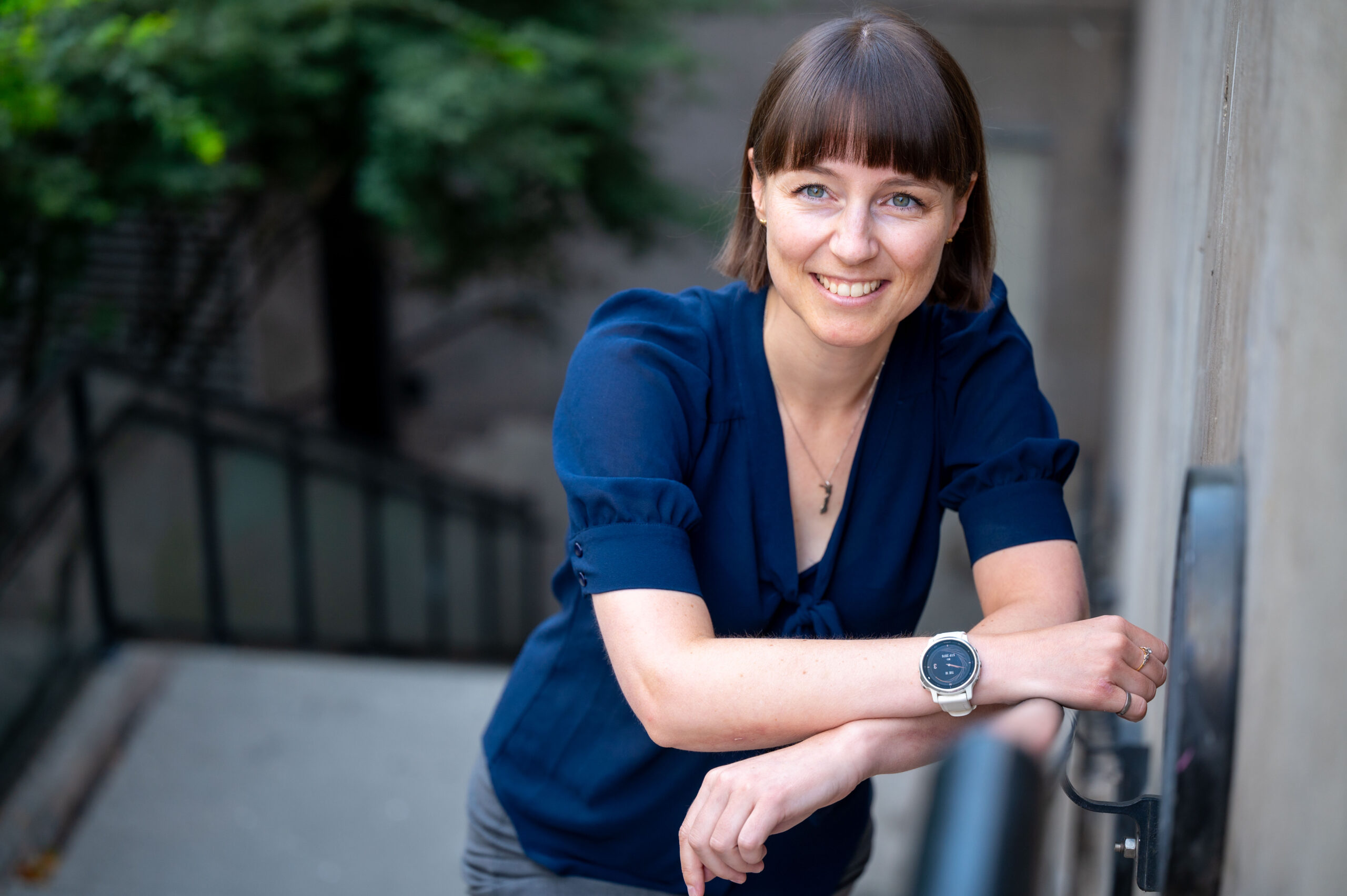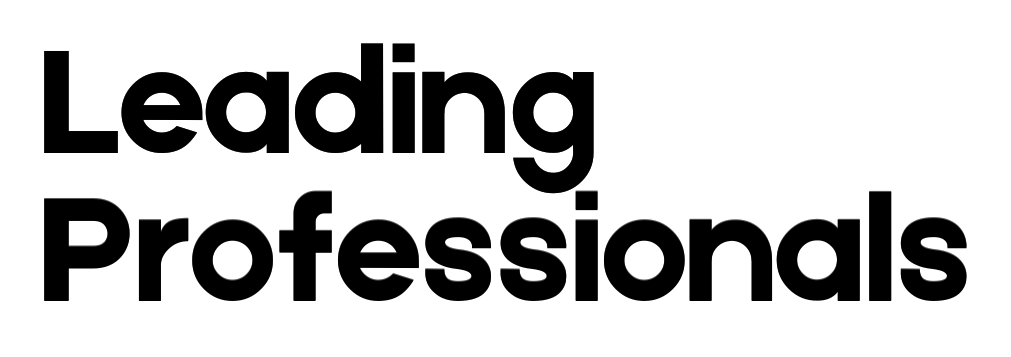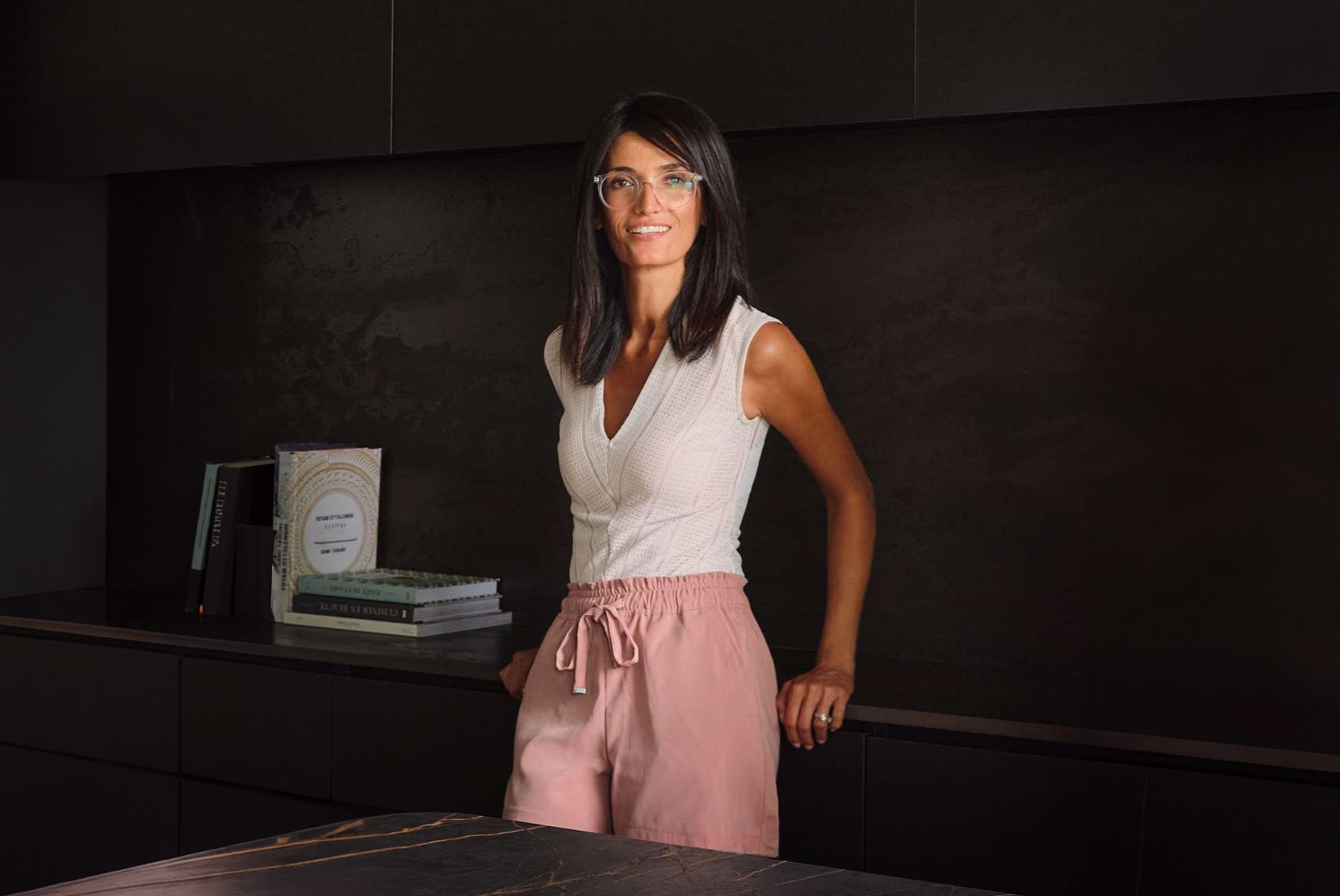
Pia Abercromby (she/her) leads a team of sustainability consultants out of Vancouver, British Columbia. This team undertakes climate risk assessments, asset management, and sustainability advisory services for clients and their engineering projects. In the day-day, this means identifying opportunities to improve sustainability in their projects and developing plans to achieve these opportunities, with deep consideration of factors related to social and environmental impact, not simply lowest construction costs.
Pia’s initial interest in engineering came from her interest in math and science and desire to achieve tangible outcomes from both disciplines. She studied engineering at the University of Auckland and practiced as a structural engineer in New Zealand, gaining valuable experience. Pia moved to Canada from New Zealand in 2015 and earned her accreditation as a Professional Engineer. She has been intentional about complementing technical knowledge with skills related to project management, leadership, and sustainability consulting.
Her transition from structural engineering to sustainability consulting is one of Pia’s proudest career achievements to date. At the time, she did not see a longer-term outlook for a career as a structural engineer for herself and wanted to meaningfully explore opportunities in sustainability. Her current leadership in sustainability enables her to improve how engineering and related projects can improve economic, social, and environmental outcomes.
“Taking this risk and stepping into sustainability consulting was the best decision I made. I now bring my passion for sustainability to my daily work and feel much more successful because of it. It was scary stepping into a new area that I didn’t have that much experience in, but it was a great leap of faith that has paid off so far.”
Reflections on Leadership
Reflecting on leadership attributes, Pia admires in others and sees as effective, she describes:
Honesty
When people provide real feedback (and you are willing to listen, not become defensive), you grow and improve.
Accountability
Having leaders who admit when they are wrong and take responsibility for issues shows strength and encourages honesty within a team to allow everyone to work together to solve problems rather than pointing fingers.
Listening
When a leader takes the time to talk to each of their team members and listen to what they have to say, it leads to a higher performing team.
Pia has had formal and informal mentors throughout her career who have been instrumental to her success.
“Gaining viewpoints of those not working directly with you enables you to understand how your company at large (and industry) works, and broadens your thinking beyond what you do on a day to day basis. Having input during challenging times from those with more experience is great – you can bounce different ideas off your mentors to see which option might be most successful and see the potential pitfalls too.”
Pia has volunteered for groups such as Association of Consulting Engineering Companies (British Columbia and Canada), BC Construction Roundtable, and Bridges to Prosperity. This involvement has enabled her to build relationships across the industry and country, and earn recognition for her commitment and leadership.
- Engineers and Geoscientists BC Young Professional Award 2023
- ACEC-BC Young Professional Award 2022
- McElhanney Equity Diversity and Inclusion Award 2021
- Structural Engineers Association BC Young Members Group – Presentation Competition Winner 2020
Fostering Inclusion in the Profession
Pia reflects that the number or percentage of women in engineering should not be the indicator of success. She highlights the importance of removing barriers to women becoming engineers and, providing options to return to work part-time after a leave of absence (e.g. parental leave) can make all the difference to retaining women and all staff in a workplace and in the profession.
“I am excited to see many women entering careers in engineering. I think this reflects the industry’s acceptance of all types of people and acknowledgement that there need not be barriers to anyone being an engineer. The next step is to focus on retaining these women throughout their careers.”
A similar concept applies to other demographics of diversity. Having a more inclusive workplace is good for business by providing different viewpoints at decision making tables, as well as creating a wider pool of potential employees.
The Importance of Engineering
Pia notes that although engineering is a well known profession, the breadth of its impact on our everyday lives is often not known more broadly. Her career embodies many examples of how engineering knowledge and skills can support not only engineering projects, but also sustainability requirements and goal, business and organizational strategy and resilience, and leadership in service of colleagues and future members of the profession.
She notes, too, that engineers going into secondary schools to explain what engineers do and present engineering as a career opportunity for young people to consider has been impactful for young people. This helps both with recruitment into the profession and with improving the public’s understanding of engineering.
“Engineering provides such incredible, often ignored services to society. The bridges and roads you drive on. The sewer and water systems that serve your home. The pacemaker that your grandmother has installed. Engineers design all of these things that are vital to how our communities function and I am proud to be a part of this industry.”
Image Credit: Wendy D Photography




